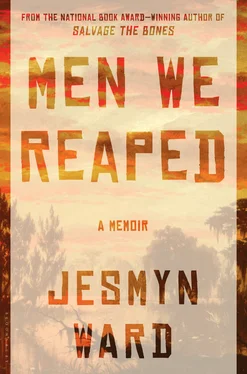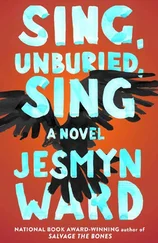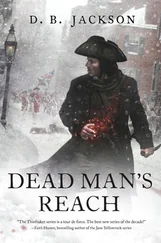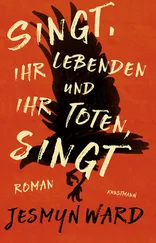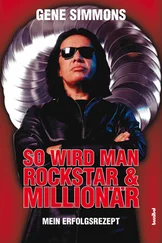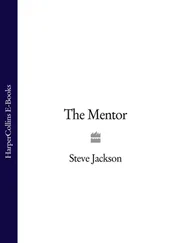The house was messy. I was grateful that at least Nerissa and Charine hadn’t broken anything. I set Nerissa and Charine to small tasks, picking up their toys in the living room, while I washed dishes. Joshua was outside in the backyard. I walked to the window with wet and soapy hands to talk to him.
“Josh,” I said, “you need to come inside and take out the trash.”
“All right,” he said.
I washed a sinkful of cups and moved on to bowls. He still wasn’t inside. I walked to the window again.
“Josh!” I said. I was frustrated: I felt the weight of being a child with adult responsibilities. I was inadequate. I was failing.
My brother stood out in the yard, peering into the dark of the house. He wasn’t looking up at me, and I realized that he and I were the same height now. His hair was a sandy brown in the sun he squinted against, and his black T-shirt was fitted on his frame, pulled so by the way he was gaining weight at eleven. Joshua looked through the screen and it was as if he saw me clearly with my soapy hands, my wrinkled fingers, my jaw grinding with frustration and self-abasement, and he hated me. Both of us on the cusp of adulthood, and this is how my brother and I understood what it meant to be a woman: working, dour, full of worry. What it meant to be a man: resentful, angry, wanting life to be everything but what it was.
Ronald Wayne Lizana. Born: September 20, 1983. Died: December 16, 2002
He’s going to be a heartbreaker when he grows up .
Ronald was nine then, and I was fifteen, but it was still evident even then, in his short, even-limbed frame, that he would grow yet more beautiful when he became older. He was light on his feet, seemed to be perpetually on his tiptoes, ready to prank, run, and disappear down the elementary school hallway. He reminded me of Joshua at that age. Ronald too was an only boy in a family of girls; I’d attended elementary school with his oldest sister. Teachers would stop his sister and me at play and ask if we were related. They’d say: Y’all look alike . Ronald looked even more like Josh standing next to my cousin Tony, who was also nine, but who was around three shades darker than Ronald.
I was a counselor at All God’s Critters day camp. It was sponsored by my high school, Coast Episcopal, and was designed to provide free summer activity for underprivileged kids. As a student, I could volunteer to be a counselor; as underprivileged kids, most of the kids I knew in DeLisle and Pass Christian were eligible to go, but only three of them attended that summer: Antonio, my cousin Rajea, and Ronald. I wrote Tony’s name in the attendance book.
“And who’s this?” I smiled at Ronald. He smiled back slowly: his teeth white, his skin copper, his eyes large and brownish black. He had a smattering of freckles across his nose. He’s going to get all the girls , I thought.
“Ronald Lizana,” he said. I wrote his name in the book.
“You’ll be with the other boys,” I said. “Come on. I’ll take y’all to your station.” I wrote Rajea’s name and grabbed her hand, leading her down the hallway. I looked back to make sure Ronald and Tony were following. Ronald grinned at Tony, and Tony started laughing at a private joke.
I’d volunteered as a counselor for the Christian day camp because I wanted to get out of the house for the two weeks the camp ran. By this time, Josh was old enough to watch Nerissa and Charine during the day while I was at camp and Mama was at work. My brother and sisters hadn’t wanted to go to the camp; they thought it was lame. “All them White people,” they said. “And church.” I shrugged. I was on the tail end of a devout Christian phase, where I spent at least half of every hour thinking about God, praying, and feeling suffused with divine love. When I’d transferred to the Episcopalian school in sixth grade, I’d found irresistible the idea of a God who loved me unfailingly, scars and all. Here was a man who would never leave, I thought. Someone whom I would never disappoint. Later, I would fall away from the church when the rigidity of the doctrine and hypocrisy of some of the most devout Christian students I went to school with became apparent to me. In the end, I realized sometimes some people were forsaken.
I was a cheerleader, which meant that instead of teaching arts and crafts or doing Bible study in the form of singing Christian folk songs with the other high schoolers and two seminary students who ran the camp, I taught dance. My co-counselor and I choreographed and taught the kids routines to “The Humpty Dance” and “I Wish I Was a Little Bit Taller,” which they were set to perform for the rest of the camp at the end of the week. On the first day, Ronald was unimpressed.
“You don’t know how to dance,” he said.
“Yes I do,” I said.
“So you can pop?”
“Yeah.”
My co-counselor was teaching the other kids the beginning of the dance and counting: “And one and two and three and four and five and six and seven and eight …”
“Do it.”
“I ain’t fixing to pop for you.”
“I can do it.”
“No, you can’t.”
Tony ambled over.
“Watch,” Ronald said. He widened his stance, put his hands palm down in front of him, and began thrusting his hips back and forth. I laughed. He could pop. Tony joined in.
“We’re not putting that in the dance.”
“Why not?” Ronald said.
The corners of his mouth twitched. He was a natural flirt.
“You really think the other boys would do it?”
“Yeah,” he said.
“You going to do it, Tony?”
“Yeah,” he said.
“Okay then.” I crossed my arms. “We’ll put it in.”
Ronald was charming, a showoff. As I carried large plastic trays of juice and graham crackers down the narrow school hallway for snack in the afternoon, he’d stop in the dim space outside of the bathroom, pat the air in front of himself, and pop. I’d laugh, the crackers in their cups sliding across the tray, the juice sloshing over the side of the waxed paper cups, rolling in thin streams so that when I finally got to the classroom with the snack, all of the cups bottoms’ were soggy.
In dance class, he caught on quickly. He was like C. J., athletic, lean, and short. He was able to pick up movements easily and imbue them with his own character. I thought because Tony and Ronald were such good friends, they’d shrug off my authority, wander off to the back of the classroom to play with the detritus of the school year or disappear into the dim hallways on hourlong bathroom breaks. But they didn’t. When I asked them to listen, they did, and they executed all my awkward dance moves, moving gleefully whenever they looked at each other, or whenever they got to the popping eight count.
Towards the end of the two weeks, we made homemade Slip ’n Slides by rolling out long plastic sheets and coating them with dishwashing detergent and water. The sky was a boundless blue, and the air was clear, free of the usual torrents of summer rain. We set both slides side by side on a slight hill in a field.
One of my co-counselors, who was shirtless, pale, and grinning in the sun, was eager to test the slide. He ran at it, jumped, and flew down the hill on his stomach and off the slide at the end, whizzing across the grass. When he stood, his chest was green and red, and I wondered if it hurt.
“That was awesome,” he said.
Ronald and Tony had the same idea.
“Watch this, Mimi!” Tony said. He ran and hurled himself down the slide. The thump sounded as if it hurt, but he grinned into the soapy water, and he flew off the end of the plastic and plowed to a stop in the dirt. Ronald took Tony’s success as a challenge. He flung himself at the plastic from a run, and zipped down the slide before landing in the grass. Ronald ran up the hill to the beginning of the slide while Tony zipped down again. I added more water and more soap. The other boys followed suit, whooping and crashing into the lawn. Ronald stopped next to me, blades of grass on his face and in his hair. I brushed them away: his face was hot and clammy under my fingers.
Читать дальше
